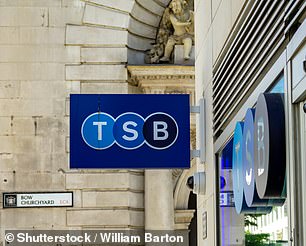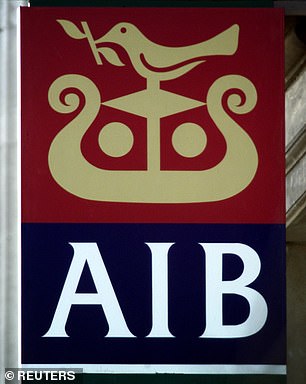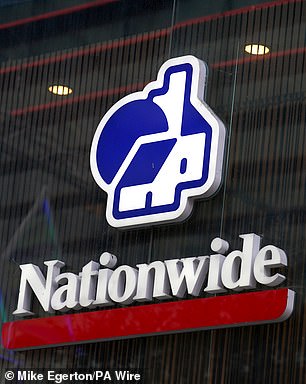Just four major banks and building societies pledge to reimburse the first £100 lost to fraud under new banking rules introduced this week
Tens of thousands of fraud victims will not receive any refunds, it was announced yesterday.
Just four of the 21 major banks and building societies have pledged to reimburse the first £100 lost to fraud under new banking rules introduced yesterday.
Scam victims are facing a ‘refund lottery’ as banks and building societies have been given the power to refuse refunds for money lost to fraud under £100, according to personal finance website Finder.
Virgin Money, TSB, AIB and Nationwide are the only major companies to commit to refunding customers for the first £100 lost to ‘push payment’ fraud, where victims are persuaded or tricked into making a payment to approve a fraudster.
Meanwhile, HSBC, First Direct, Lloyds, Halifax and Bank of Scotland are among the banks that will not cover this first £100 of their customers’ losses.
Just four of the 21 major banks and building societies have pledged to cover the first £100 lost to fraud under new banking rules introduced yesterday (stock image)


Virgin Money, TSB, AIB and Nationwide are the only major companies to commit to refunding customers for the first £100 lost to ‘push payment’ fraud, where victims are persuaded or tricked into making a payment to approve a fraudster (stock images)


AIB and Nationwide also cover the first £100 lost to fraud for their customers (stock images)
Long-awaited rules to protect scam victims will require banks to refund customers up to a maximum of £85,000 if they have lost cash.
The Payment Systems Regulator last month dramatically reduced the top reimbursement ceiling by £330,000, in a U-turn following pressure from ministers and industry bodies.
Customers would have been reimbursed up to £415,000 under previous plans.
But the watchdog has left it up to banks to decide whether they choose to apply a £100 ‘deductible’ – except for vulnerable customers who need to be repaid in full.
Many of the UK’s largest banks have not provided clarity, claiming they ‘can’ cover smaller losses or will assess claims on a case-by-case basis.
Fraudsters stole £1.2 billion in 2023 and £460 million was lost to APP fraud.
Victims were reimbursed for 62 percent of losses in the form of compensation, and new rules have been put in place to increase the total amount returned to victims.
Losses in around one in three cases of push payment fraud were £100 or less, data from banking sector UK Finance shows.
Liz Edwards from Finder said: ‘Our research exposes the refund lottery that fraud victims now face.
‘Based on fraud figures from 2023, more than 58,000 cases would not have resulted in a refund if all companies had applied the deductible.
‘It doesn’t help that twelve banks have said they might implement it; customers don’t know where they stand.’
However, consumers could soon have protections added under proposed new Treasury plans that would give banks the power to extend by 72 hours the time suspect payments can be deferred.
This would give them time to intercept suspicious transfers before sending the money to criminals.
